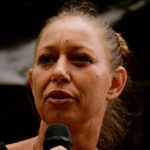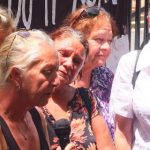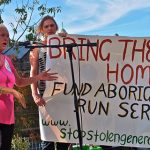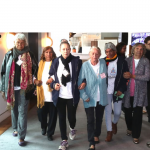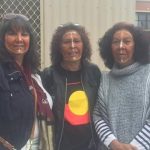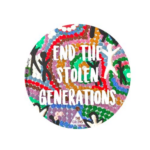Ongoing Forced Aboriginal Child Removals in WA Could Result in Genocide Prosecution
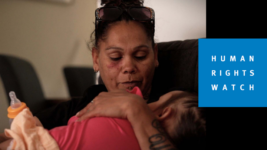
The number of Aboriginal children in out-of-home care in Western Australia has dramatically escalated over the last two decades.
In 2003, there were 570 First Nations kids in WA state care, which comprised 35 percent of all children in such care, whereas by 2023, this had skyrocketed to 3,068 Aboriginal kids, which accounted for 59 percent of children forcibly removed from their parents.
To put the disproportionate nature of these circumstances into starker relief, First Nations children in WA only account for 7 percent of the state’s overall child population, and as Human Rights Watch points out in its last week-released report, these figures mean “Western Australia has the highest rate of overrepresentation of Aboriginal children in out-of-home care of any state or territory”.
Released on 26 March, the “All I Know Is I Want Them Home” Disproportionate Removal of Aboriginal Children from Families in Western Australia report is based upon input from 33 Aboriginal families, who together have had 100 children forcibly removed by the WA Department of Communities, along with testimony from grandparents and individuals who’ve been removed.
The rising practice of forced Aboriginal child removals by departments of community has been highlighted right across the nation over recent years. This practice mirrors that of the Stolen Generations, which comprised of the mass stealing of Indigenous children from the late 1800s until the early 1970s, and over its earlier iteration, WA too had the highest rates of Aboriginal kids taken.
HRW further posits that a wealthy state like WA removing kids, and often citing housing and domestic violence as reason, should be addressing these issues at their root cause. And as the 1997 Bringing Them Home report identifies Indigenous child removals as a “genocidal” practice, there’s likely room for a genocide case to be mounted against the WA state and the department itself.
Unaddressed and then repeated
“Aboriginal families are struggling with unstable accommodation, yet a secure home – one of the most fundamental needs for a child to thrive – is denied to them,” said Marianne Headland Mackay, support coordinator of the National Suicide Prevention and Trauma Recovery Project, which is the WA-based organisation that assisted HRW with the research.
“Instead of offering support to struggling families, the government’s approach is to remove children, causing more damage and deepening the wounds in our communities,” the Noongar woman added.
According to the rights organisation, successive WA governments have failed to address the harms caused by the Stolen Generations, the intentional targeting of First Nations kids for removal as part of a racist assimilation policy to “absorb” First Peoples into the white settler population, or to put it another way, a genocidal policy, which sought to undermine and end Aboriginal society and culture.
And whilst taking the cake in terms of “the highest representation of Aboriginal children in the care system”, WA is also the state that allocates the least of its child protection budget, just 5 percent, to assist families in remaining as primary carers of their children, with the national average being a 15 percent allocation.
The HRW report also cites comments made by Aboriginal elder Brian Butler in his 2021 book Sorry and Beyond, in which he notes that despite the turn to a multicultural society four decades ago, “Non-Indigenous Australians still tend to believe that Indigenous culture has little to offer a child in comparison with western culture – the mindset that created the Stolen Generations.”
Reforming the system
Child protection in WA is governed by the Children and Community Services Act 2004 (WA), which empowers the department to forcibly remove children from their parents, when it deems they’ve experienced or are likely to experience “harm because of physical abuse, sexual abuse, emotional abuse and/or neglect”. And family violence and then neglect are the reasons most often cited.
The parents interviewed contend that the department is unjustifiably removing children due to reasons beyond their control, such as homelessness or being the victim of domestic violence. So, instead of running a child protection system that prioritises keeping families together, the department is punishing parents for being in a state of poverty.
“Of the 114 children that were removed from their parents interviewed by Human Rights Watch, only about 18 were reunited,” the HRW researchers note. “In some cases, children became so desperate to leave care and reunite with their parents that they resorted to running away from their care placements to return to their parents.”
The report notes that children being placed in out-of-home care results in overall poorer outcomes for them in terms of physical and mental health, as well as education, while being placed in the care of the state, is well understood to heighten a child’s likelihood of ending up in a child prison and then moving on to the revolving door of the adult carceral system.
The report recommends that similar to the Custody Notification System, which ensures that when an Aboriginal person is taken into police custody, that they’re then put in contact with a lawyer from an Aboriginal legal service, a system be established that would involve the automatic placing of parents who’ve had a child removed in touch with legal entities that can assist them.
There’s also calls for the strengthening of the legislated Aboriginal and Torres Strait Islander Child Placement Policy Principle, which ensures that the department attempts to place children in the care of family or kin prior to being placed in care that is further removed, so that active measures are taken to ensure children are kept in connection with family, culture, community and country.
A political veto on prosecutions
Senator Lidia Thorpe raised the Bringing Them Home report in the Senate on 26 March, as being a “damning indictment of the genocidal policies used against First Peoples in this country”, which appears could be potentially underway once again in the west of the continent, and she underscored that despite all this each year, Aboriginal children “are still being snatched at record rates”.
The Rome Statute of the International Criminal Court defines genocide as an attempt to destroy, in whole or in part, a national, ethnical, racial or religious group, via killings, causing serious bodily or mental harm, deliberately inflicting conditions calculated to bring about physical destruction, the prevention of births, or the forcible removal of children from the group.
Thorpe, a Gunnai, Gunditjmara and Djab Wurrung woman, raised this point as she was bringing on a vote on her Criminal Code Amendment (Genocide, Crimes Against Humanity and War Crimes) Bill 2024, which sought to remove the attorney general’s fiat, which is a power that allows the chief lawmaker to greenlight or block the prosecution of genocide and other atrocity crimes.
Both major parties then voted down this bill, which means, as has been the case with all attempts to prosecute the Rome Statute atrocity offences since the Australian government inserted these international atrocity crimes into the Criminal Code Act 1995 (Cth) in September 2002, further cases will likely also be blocked.
In the event of an attempt to launch a genocide case in relation to the ongoing WA forced child removals crisis, such a prosecution could bring about systemic change, as well as holding the state and its officials accountable for the devastation this policy is currently wrecking upon First Nations communities.
In rising to speak in favour of Thorpe’s bill, Greens Senator Dorinda Cox made certain that the “harsh reality” is that “ the colonial and Australian governments have committed all” forms of the criminal offence of genocide on this continent.
“These are uncomfortable conversations to have, but they are necessary to face the injustices that are happening,” Cox, a Yamatji and Noongar woman, told the chamber last month. How many of our children continue to be transferred into out-of-home care?”
“When we said sorry in this place, that should have meant never again,” the Greens senator said in conclusion. “In 2008, it meant that everyone should be standing on the right side of history, but it’s continuing. The genocide continues.”


